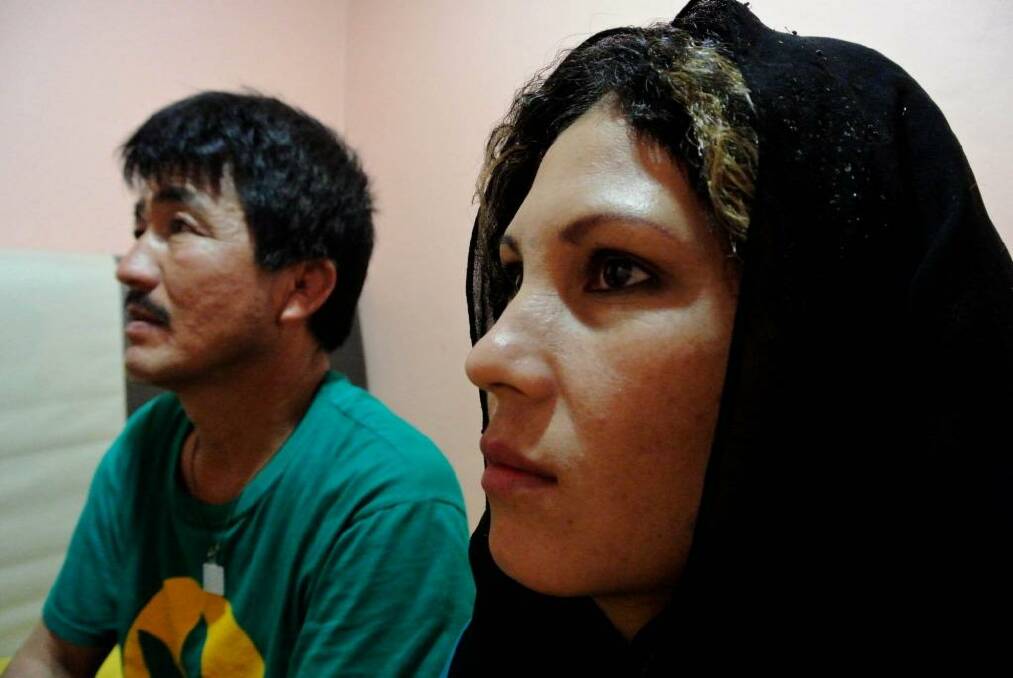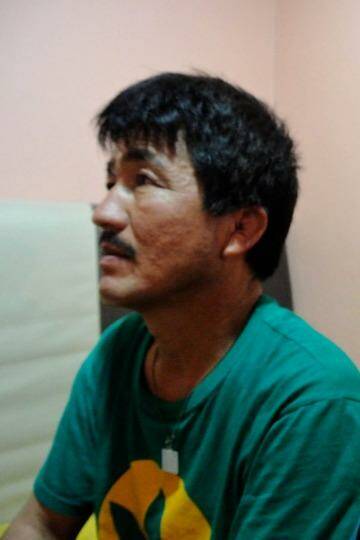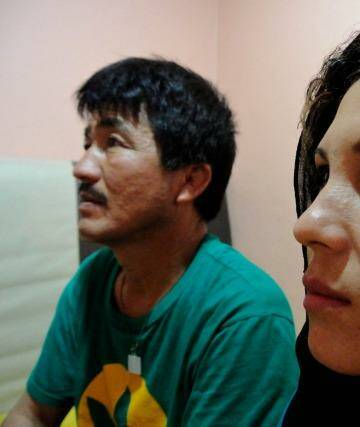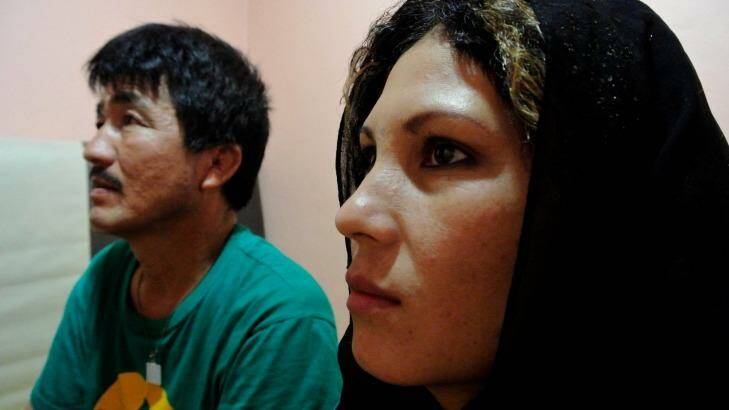






Jakarta: A year after Operation Sovereign Borders swung into action, and more than four months since Australia turned back its last boat to Indonesia, scores of people still arrive each week in Jakarta to plead for asylum.
Every morning they gather at the narrow, steel gate of the UN High Commissioner for Refugees to register their names and are confronted with a printed sign saying they will wait for a year at least.
Most arrivals say they know before they leave their countries about Prime Minister Tony Abbott's determination to stop the boats. "The way is closed," as they put it, but still, at the rate of between 70 and 100 people each week, they come.
Across the road from the UNHCR office, on a blue-tiled step above a stinking drainage ditch, a group of eight young men from Afghanistan, the Palestinian Territories and Somalia are sleeping rough, unable to afford accommodation.
Ask Hadi Khododadi, 17, why he made the journey, and he looks at you as if it is obvious.
An Afghan Hazara, he arrived in May from Iran, where he was brought up after his parents fled Afghanistan. Without papers in Tehran he had no life; he says he was unable to study or work, and was often harassed by authorities and threatened with imprisonment.
He believed he had no other choice but to leave, so his father went to a people smuggler. His smugglers had listened to Abbott and Immigration Minister Scott Morrison and did not mention boats.
"Every human smuggler now is talking about the UNHCR," Khododadi says.
"They say if you reach Indonesia, the UNHCR can help you and can give you money; you can go quickly to Australia or another country … just one year here, you can reach Australia legally."
Subscribe now for unlimited access.
$0/
(min cost $0)
or signup to continue reading
For most, that is a lie. The process is usually much longer – two to three years is standard – and the UNHCR provides no financial support. Asylum seekers cannot work in Indonesia or go to school and there is little access to other welfare organisations. Church World Service helps underage people but it has just 40 beds in Jakarta and they are full.
UNHCR figures show 5564 people are in Indonesia seeking asylum, and 3983 more have already been found to be refugees but do not have a resettlement place. Even though thousands have gone home, particularly to Iran, since Operation Sovereign Borders began, the total is kept high by the stream of new arrivals. Most are from Afghanistan, Iraq, Pakistan and Somalia.
People are dismayed Australia's intake of refugees will drop again, as the Government says of its 13,750 refugee places, 4400 will be prioritised for victims of the conflict in Iraq and Syria. To these people, it suggests an even longer wait.
Khododadi has no money so, plagued by hunger, rain and mosquitoes, he tries to sleep by the side of the road. The property owners, a sympathetic Indonesian couple, feed him and his friends a rudimentary diet, but everything else – toilets and showers – cost.
It's also dangerous. As we talk, Salim al-Zaalam, 46, another of the ravaged crew living on the step, stops to bellow at us about his troubles. He's virtually blind, a situation caused, he says, by a beating from an Indonesian gang as he slept in the street. It's hard to know what to believe; he also says British and US spies are pursuing him. Friends say during the 18 months he's spent in Indonesia, Mr Zalaam's body and mind have both deteriorated.
Hamid Ibrahimi is only 15 and terrified. He, too, is an Afghan Hazara who was living with his parents in Iran. Since he arrived penniless in Indonesia two months ago, he's been sleeping on the roadside opposite the Church World Service office, also surviving on the charity of Indonesians.
His agent in Tehran insisted he could still go by boat to Australia if he found a smuggler in Indonesia.
"I thought if the way was open, I'll go by boat," he says. "If it's closed I'll stay. Now I understand that it will take years. What should I do? I am alone. No one looks after me. I am scared about what to do."
Not only young men are making the journey.
Mohammad Qadiri and his lover Layla Ahmadi arrived two weeks ago and spent their first night in a park. They have temporarily rented a tiny room in an alley 10 minutes from the UNHCR office for $13 a night, but won't be able to afford it for long. They have only $200 left.
The couple is unmarried and she is carrying his child, an offence that put their lives at risk in their home province of Parwan, Afghanistan.
"Her family wanted to kill me … they will throw stones at us, that is the danger," Qadiri says.
They say they had no other option but to leave, via India and Malaysia, for Indonesia.
Ahmadi is sick, exhausted from the boat ride from Malaysia and the subsequent 24-hour drive from the landing place in Sumatra to Jakarta. She keeps clutching her belly and lying down. But they have a touching faith in the goodwill of Australians.
"Please, send our story to the Australian people and the Australian government so they can help us. If we have to stay here, five, four, three years, what should we do? I don't have any more money."
Mohammad Zaher Zafari and his wife Shahista Dowoodi are also running from potential honour killing. They are married, but a local political leader in Daykundi province also wanted to marry Dowoodi, 23, and so threatened to kill her husband.
Twice the politician and his cronies attacked Zafari with a knife, the first time on the night of the wedding. He lifts his shirt to show the scars. In a second attack the gang slashed him again and stole the taxi that provided his income. A bullet fired during that attack glanced off a rock and grazed the side of his head.
His people smuggler in Afghanistan simply promised a trip to Indonesia to wait in the UNHCR queue, but gave no indication of how long it would take.
"I can stay with my own money just for 15 to 20 days and then I'll have to go to a detention centre," Zafari says. Others have already sought out detention as their only way to survive.
Abbott and Morrison may have stopped the boats, but they cannot stop the world's misery, nor how some people come to see no option but flight.
"We had to do this," says Dowoodi glumly. "We didn't have any other way."

